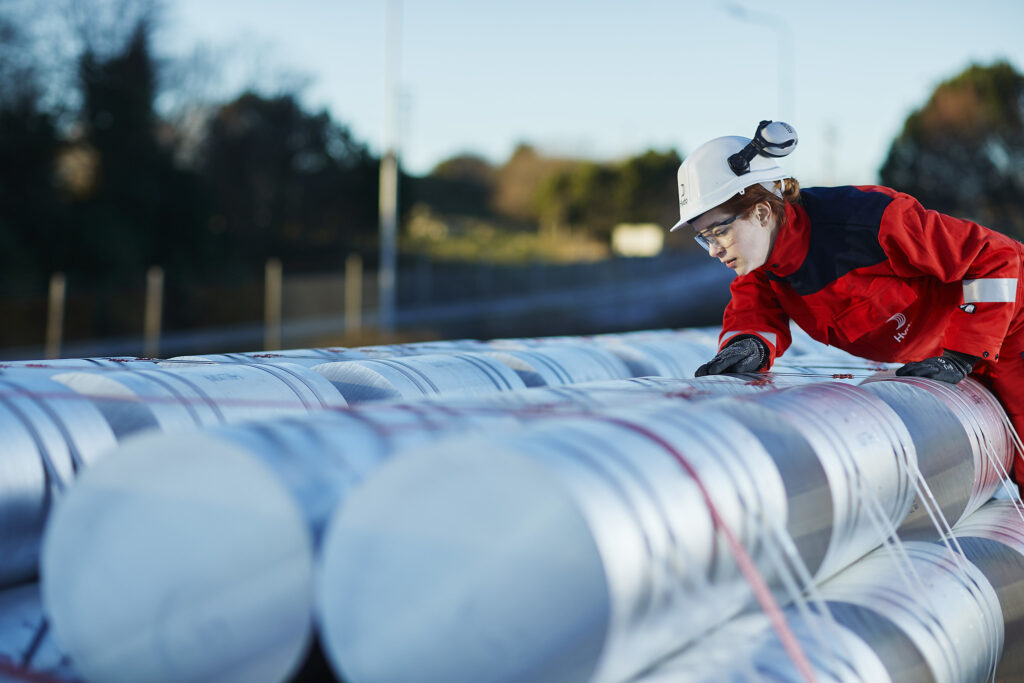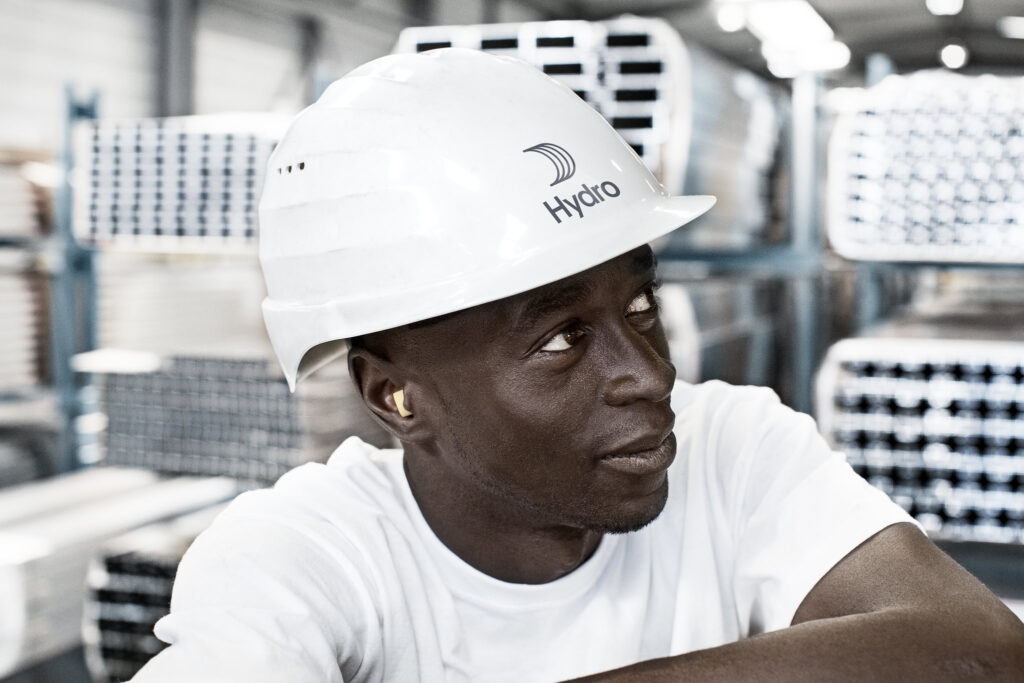As the world transitions towards a net-zero economy, the role of materials like aluminium becomes increasingly crucial. Aluminium’s unique properties make it an essential component in various industries, from transportation to renewable energy systems and of course, in the built environment.
Our supplier, Hydro, is leading the way in sustainable aluminium production.
By focusing onsustainable aluminium production, Hydro is not only reducing its environmental footprint but also enabling its customers to do the same.

Photo by Hydro/Bård Gudim
Aluminium in a Net-Zero Economy
The shift towards a net-zero economy demands innovative solutions and a commitment to reducing emissions. Hydro’s efforts in this
direction are pivotal, as the company works to minimise the environmental impact of its operations while supporting the broader
transition to a more sustainable economy.
LEWIS is Proud To Work With Hydro’s Aluminium Especially Because Of
- The importance of aluminium in achieving a net-zero economy is growing.
- Hydro is leading the way in sustainable aluminium production.
- The company’s efforts are crucial in reducing emissions and supporting a sustainable economy.
- Sustainable practices in aluminium production are becoming increasingly vital.
- Hydro’s role in enabling its customers to reduce their environmental footprint is significant.

Photo by Hydro
The Strategic Importance of Aluminium Today
Aluminium is a critical material in today’s world, thanks to its unique combination of strength, durability, and recyclability.
Its versatility makes it an essential component in various industries, from transportation and construction to packaging and renewable energy systems.
At LEWIS, we use it in our access equipment, which is then bought by constructors, various entities, tradespeople and enthusiastic DIYers.
Mark Guirard,MD
Aluminium’s Unique Properties and Versatility
Aluminium’s properties, such as its lightweight nature, corrosion resistance, and high electrical conductivity, make it an ideal material for a wide
range of applications. For instance, in the transportation sector, aluminium is used to manufacture lighter vehicles, thereby improving fuel efficiency
and reducing emissions. The use of aluminium in electric vehicles is particularly noteworthy, as it helps to offset the weight of batteries,
enhancing overall vehicle efficiency.
Moreover, aluminium’s recyclability is a significant advantage, as it allows for the production of new aluminium products with substantially less energy
than primary production. This aspect is crucial in reducing the overall carbon footprint of aluminium production.
Our Supplier’s Ethos Can Be Found In All Places Throughout Its Worldwide Sites
“I believe a company that values and encourages employees to strive to be better makes it a great place to work. This fosters a mindset that we can make a positive impact both externally and internally, creating an atmosphere of camaraderie and collaboration,” says Marcos, when asked what makes Hydro a great place to work.
Marcos Nascimento
Hydro: A Partner On The Lewis Journey

“Hydro’s integrated aluminium value chain enables us to be a partner in our customers’ and suppliers’ journeys to deliver more sustainable products to the market. We do this by managing our climate, nature and social footprint.”
Hydro White Paper


